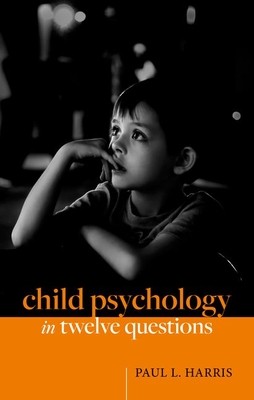
- We will send in 10–14 business days.
- Author: Paul L Harris
- Publisher: Oxford University Press, USA
- ISBN-10: 0192866508
- ISBN-13: 9780192866509
- Format: 14.5 x 21.9 x 2.2 cm, hardcover
- Language: English
- SAVE -10% with code: EXTRA
Reviews
Description
Child psychology as a scientific enterprise is about 100 years old, but while numerous textbooks and practical guides are available, the more meditative questions about the nature of a child's mind are rarely asked. This book explores some of the enduring questions in developmental psychology: How do children form an attachment to their caregivers? How do they learn words? In their imagination, are they confused - or clear-sighted - about the difference between fantasy and reality? How do they decide who to trust? In each case, Paul Harris shows why these questions are important, proposes likely answers, and explains the uncertainties that persist. He outlines important landmarks, both well-known and neglected, and explores broader questions about theories of mind, morality, and cross-cultural differences.
EXTRA 10 % discount with code: EXTRA
The promotion ends in 20d.22:34:34
The discount code is valid when purchasing from 10 €. Discounts do not stack.
- Author: Paul L Harris
- Publisher: Oxford University Press, USA
- ISBN-10: 0192866508
- ISBN-13: 9780192866509
- Format: 14.5 x 21.9 x 2.2 cm, hardcover
- Language: English English
Child psychology as a scientific enterprise is about 100 years old, but while numerous textbooks and practical guides are available, the more meditative questions about the nature of a child's mind are rarely asked. This book explores some of the enduring questions in developmental psychology: How do children form an attachment to their caregivers? How do they learn words? In their imagination, are they confused - or clear-sighted - about the difference between fantasy and reality? How do they decide who to trust? In each case, Paul Harris shows why these questions are important, proposes likely answers, and explains the uncertainties that persist. He outlines important landmarks, both well-known and neglected, and explores broader questions about theories of mind, morality, and cross-cultural differences.


Reviews